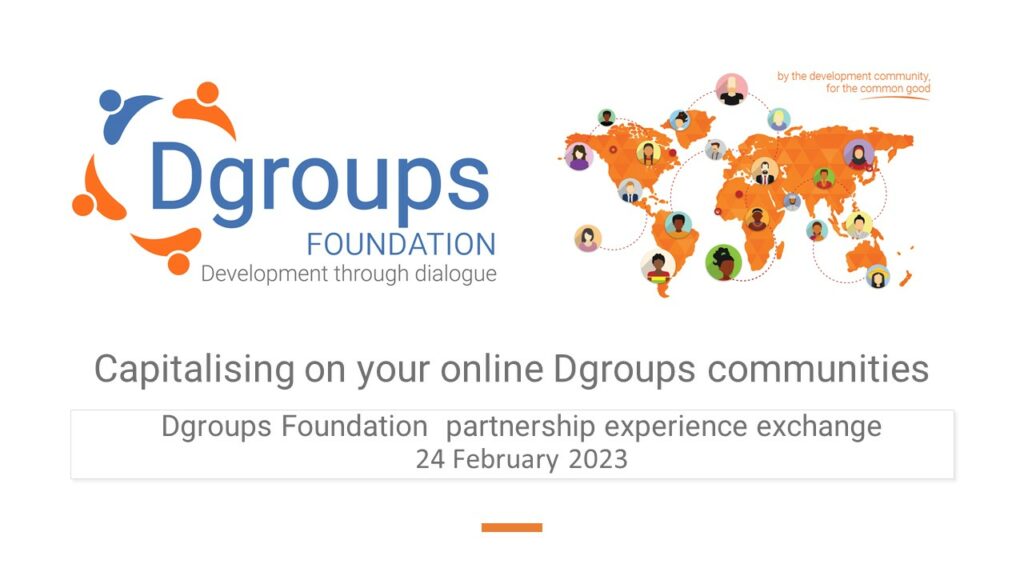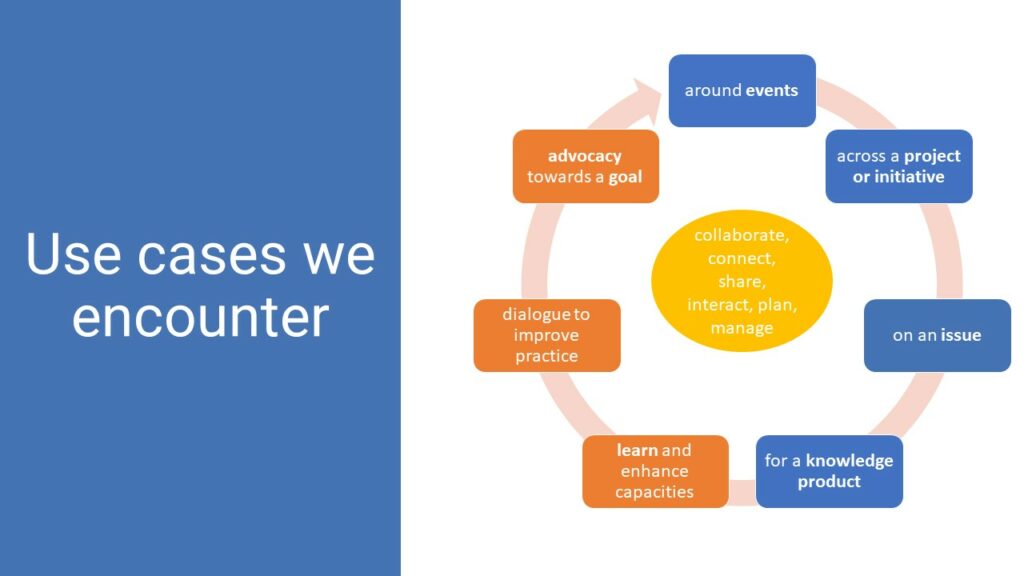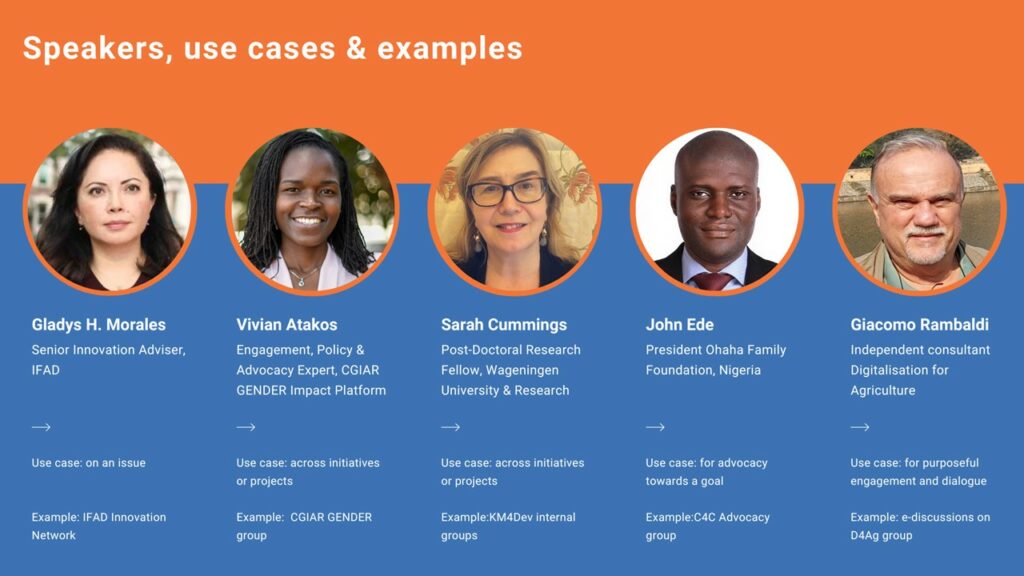While development and humanitarian organizations tend to use similar online tools and platforms to collaborate, we tend to use them in different ways and for different purposes. Exploring and sharing tips from these different uses was the focus of a recent Dgroups Foundation online partner experience exchange.

The experience-sharing session on 24 February 2023 drew from our diverse partner network and their sector involvement to discuss and share practical strategies of different online communities. To do this, we used a typology of uses – or use cases – that we observe our partners to work with. We thought these would provide a useful framework to interact and learn while recognizing that most such communities have several objectives.
After an icebreaker session, Peter Ballantyne very briefly introduced the Dgroups Foundation and its journey since 2002. He summarized the typology comprising seven typical uses cases that we observe among partners:
- around events – helping to prepare, plan, report, and follow up face-to-face, virtual or hybrid meet-ups;
- across initiatives or projects – supporting collaboration and information exchange among participants in a defined project;
- on an issue – sharing ideas and connecting people with shared interests in a topic;
- for a knowledge product – reinforcing co-development of proposals, articles, or other joint outputs among a group of individuals;
- for learning and capacity development – sharing information and lessons to complement training, mentoring, or other educational efforts;
- for purposeful engagement and dialogue – holding guided conversation and interaction to improve practice on an issue or challenge;
- for advocacy towards a goal – helping people share and align ideas and actions around a shared vision.

While recognizing that online groups typically support multiple purposes, we thought it would be useful to explore the similarities and differences around different uses and how these shape the support and facilitation an online group needs.
The rest of the event dived deeper into different cases to identify insights for success.
The first element was a ‘peer assist’ where Jessica Ball sought lessons and feedback on how an online group could support event preparation, delivery, and follow-up.
Pier Andrea Pirani was her ‘peer assistant’ and he illustrated some ideas from an earlier engagement where a three-day face-to-face workshop used online groups before, during, and after the event. In that case, participants in the face-to-face meeting were invited to join a facilitated pre-event group where they introduced themselves, mapped interests and expertise, and pointed to additional resources. Material from this was used in the physical meeting. The group was also used during and after the workshop to start synthesizing insights and to support the follow up actions.
Next, Saskia Harmsen hosted a talk show where other use cases were the primary focus:
- Gladys Morales from the IFAD innovation network talked about her online group as an example of an issue-driven community of interest.
- Vivan Atakos from the CGIAR GENDER Impact Platform talked about her group as an example of a project or initiative-supporting mechanism.
- Sarah Cummings from the KM4Dev community explained how several online groups are used internally to manage this community of individuals.
- John Ede from the C4C coalition explained how this group of organizations use their online groups to support advocacy initiatives towards specific goals.
- Giacomo Rambaldi shared how the Digital Agri Hub ran an online, facilitated dialogue to mobilise ideas across its online community.

Discussions revolved around technical issues and platform-related features, as well as facilitation and user-side concerns. Ideas and suggestions were floated to better support users and moderators in utilizing such platforms to their full potential.
Overall, the dialogue underscored the relevance of the Dgroups Foundation’s mission to support and enhance Partners’ online groups and communities through learning, peer-sharing, and experimentation to optimize platform functionality and facilitation processes.
This is the first of a series of short posts from the discussion. The other two posts cover:
- Online interaction around events and meetings – the peer assist
- Online collaboration use cases in depth – the talk show